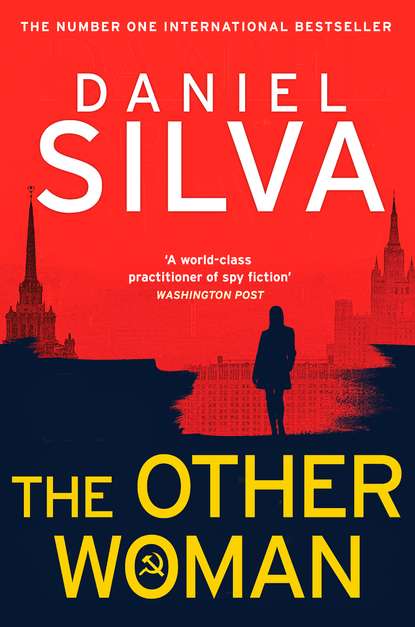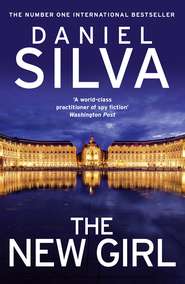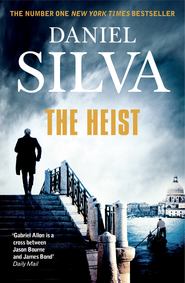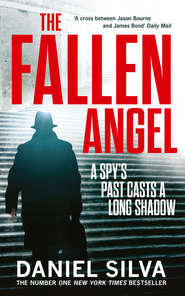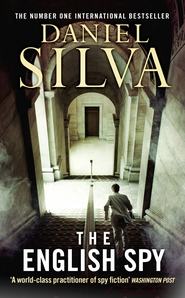По всем вопросам обращайтесь на: info@litportal.ru
(©) 2003-2024.
✖
The Other Woman
Автор
Год написания книги
2019
Настройки чтения
Размер шрифта
Высота строк
Поля
“Caution bordering on skepticism, which is our default opening position. We assumed he was telling us a tall tale, or that he was an agent provocateur sent by Moscow Center to mislead us into carrying out a self-destructive witch hunt for a traitor in our midst.”
“So you told him you weren’t interested?”
“The opposite, actually. We told him we were very interested but that we needed a few weeks to make the necessary arrangements. In the meantime, we checked his references. Gribkov was no probationer. He was a veteran SVR officer who’d served in several rezidenturas in the West, most recently in Vienna, where he’d had numerous contacts with my Head of Station.”
“Dishy Alistair Hughes.”
Seymour said nothing.
“What was the nature of the contacts?”
“The usual,” said Seymour. “What’s important is that Alistair reported each and every one of them, as he’s required to do. They were all logged in his file, with cross-references in Gribkov’s.”
“So you brought Hughes to Vauxhall Cross to get his impressions of Gribkov and what he was selling.”
“Exactly.”
“And?”
“Alistair was even more skeptical than London Control.”
“Was he really? I’m shocked to hear that.”
Seymour frowned. “By this point,” he said, “six weeks had passed since Gribkov’s initial offer of defection, and he was starting to get nervous. He made two highly inadvisable phone calls to my man in New York. And then he did something truly reckless.”
“What’s that?”
“He reached out to the Americans. As you might expect, Langley was furious at the way we’d handled the case. They put pressure on us to take Gribkov as quickly as possible. They even offered to pay a portion of the ten million. When we resisted, it turned into a full-blown family feud.”
“Who won?”
“Moscow Center,” said Seymour. “While we were bickering with our American cousins, we failed to notice when Gribkov was ordered home for urgent consultations. His wife and children returned to Russia a few days later, and the following month the Permanent Mission of the Russian Federation to the United Nations announced the appointment of a new press attaché. Needless to say, Vladimir Vladimirovich Gribkov has never been seen or heard from since.”
“Why wasn’t I told about any of this?”
“It didn’t concern you.”
“It concerned me,” said Gabriel evenly, “the minute you let Alistair Hughes within a mile of my operation in Vienna.”
“It didn’t cross our mind not to let him work on the operation.”
“Why not?”
“Because our internal inquiry cleared him of any role in Gribkov’s demise.”
“I’m relieved to hear that. But how exactly did the Russians learn Gribkov was trying to defect?”
“We concluded he must have tipped them off with his behavior. The Americans agreed with our assessment.”
“Thus ending a potentially destabilizing fight among friends. But now you have another dead Russian defector on your hands. And the one common denominator is your Head of Station in Vienna, a man who carried on an extramarital affair with the wife of an American consular officer.”
“Her husband wasn’t a consular officer, he was Agency. And if marital infidelity were an accurate indicator of treason, we wouldn’t have a service. Neither would you.”
“He’s been spending a lot of time across the border in Switzerland.”
“Did your little bird tell you that, too, or have you been watching him?”
“I would never watch one of your officers without telling you, Graham. Friends don’t do that to one another. They don’t keep each other in the dark. Not when lives are at stake.”
Seymour offered no response. He looked suddenly exhausted and weary of the quarrel. Gabriel did not envy his friend’s predicament. A spymaster never won in a situation like this. It was only a question of how badly he lost.
“At the risk of putting my nose somewhere it doesn’t belong,” said Gabriel, “it seems to me you have two choices.”
“Do I?”
“The most logical course of action would be to open an internal investigation into whether Alistair Hughes is flogging your secrets to the Russians. You’ll be obligated to tell the Americans about the inquiry, which will send your relationship into the deep freeze. What’s more, you’ll have to bring your rivals at MI5 into the picture, which is the last thing you want.”
“And the second option?” asked Seymour.
“Let us watch Hughes for you.”
“Surely, you jest.”
“Sometimes. But not now.”
“It’s without precedent.”
“Not entirely,” replied Gabriel. “And it’s not without its advantages.”
“Such as?”
“Hughes knows your surveillance techniques and, perhaps more important, your personnel. If you try to watch him, there’s a good chance he’ll spot you. But if we do it—”
“You’ll have license to rummage into the private affairs of one of my officers.”
With a shrug of his shoulders, Gabriel made it clear that such license was his already, with or without Seymour’s acquiescence. “He won’t be able to hide it from us, Graham, not if he’s under round-the-clock surveillance. If he’s in contact with the Russians, we’ll see it.”
“And then what?”
“We’ll hand the evidence over to you, and you can do with it as you see fit.”
“Or as you see fit.”
Gabriel did not rise to the bait; the contest was nearly over. Seymour lifted his eyes irritably toward the grate in the ceiling. The air was Siberian cold.
“I can’t let you watch my Vienna Head without someone from our side looking over your shoulder,” he said at last. “I want one of my officers on the surveillance team.”
“That’s how we got into this mess in the first place, Graham.” Greeted by silence, Gabriel said, “Given the current circumstances, there’s only one MI6 officer I’d accept.”





